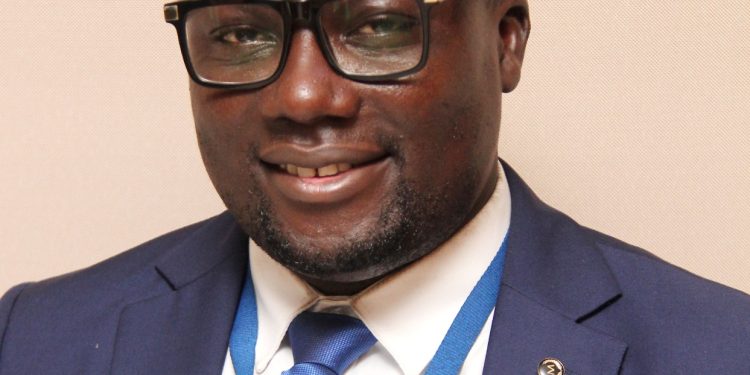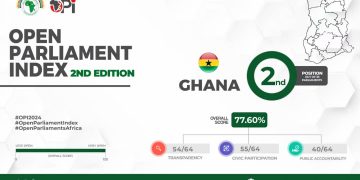Islamic Banking: A Model of Ethical Finance Rooted in Shared Abrahamic Values – A Public Education on Non-Interest Banking in Ghana
Ghana is a secular state. Our Constitution guarantees freedom of religion and ensures equal treatment for all faiths. It is for this reason that both Muslims and Christians enjoy state-recognized holidays: we celebrate Christmas and Easter just as we observe Eid-ul-Fitr and Eid-ul-Adha. This mutual respect and recognition are symbolic of the peaceful coexistence we enjoy as a nation. In our churches and mosques, at our festivals and family gatherings, we find common ground. It is this same spirit of inclusion that must guide our understanding of Islamic banking, a financial model that aligns with Ghana’s constitutional principles of freedom, plurality, and development.
A recent concern raised in the public domain about the introduction and development of Islamic banking, more appropriately termed non-interest banking, in Ghana reflects genuine anxieties in a diverse society, but they also stem largely from misconceptions about the nature, origin, and purpose of Islamic finance. It is imperative that we approach this conversation not with suspicion or fear, but with facts, clarity, and respect for our shared values as Ghanaians and members of the broader Abrahamic faith traditions.
First and foremost, Islamic banking is not a religious imposition, nor is it a backdoor attempt to Islamize Ghana. Rather, it is a form of financial intermediation rooted in ethical principles that can be traced to the Abrahamic faiths, Judaism, Christianity, and Islam. These principles emphasize justice, transparency, mutual benefit, and, importantly, the prohibition of exploitative interest (commonly referred to as usury). Indeed, the concept of avoiding interest is not unique to Islam. The Bible, particularly in the books of Exodus, Leviticus, and Deuteronomy, also warns against charging interest on loans, especially to the poor and vulnerable. The Qur’an builds upon this moral foundation, advocating financial justice and equity through non-interest financial models. What we now refer to as Islamic or non-interest banking is, in essence, a financial system born of our collective religious heritage.
In Ghana, this model is already legally recognized. The Banks and Specialized Deposit-Taking Institutions Act, 2016 (Act 930), under Section 18(r), explicitly provides for the establishment of non-interest financial institutions. This recognition was not an act of religious preference, but an acknowledgment by the Republic of Ghana, a secular and inclusive nation, that alternative financial models have a legitimate place in our economic system. Non-interest banking provides choice. It does not displace conventional banking; it complements it, offering financial services to people whose ethical, religious, or social values align with its principles.
We must understand that Islamic banking has already been successfully implemented in countries that are not Muslim-majority. The United Kingdom, for instance, is a secular democracy that hosts fully licensed Islamic banks such as Al Rayan Bank. The UK government has even issued sovereign sukuk (Islamic bonds), a clear sign of its recognition of the value that Islamic finance brings to a diverse financial ecosystem. Similarly, countries like South Africa, Singapore, Hong Kong, and Luxembourg have all embraced Islamic finance without compromising their secular frameworks or religious diversity.
Closer to home, Nigeria provides one of the most compelling case studies. The country’s non-interest banking sector has grown significantly since its inception, with customers cutting across religious lines. One of Nigeria’s largest non-interest banks, Jaiz Bank, reports that a substantial portion of its client base are Christians, businesspeople, families, and institutions who prefer ethical banking models that avoid speculation, uncertainty, and interest-based transactions. It is simply incorrect to suggest that Islamic banking has created division or dissatisfaction among Christians in Nigeria. On the contrary, non-interest banks in Nigeria have become platforms for unity, economic empowerment, and interfaith collaboration.
The principles guiding Islamic banking, such as risk-sharing, asset-backed transactions, and social responsibility, are increasingly relevant in today’s economic climate. These principles foster financial inclusion, support entrepreneurship, and prioritize real economic activities over financial speculation. Non-interest banking emphasizes investing in tangible sectors of the economy, such as agriculture, healthcare, housing, and small enterprises. These are the very areas Ghana seeks to develop for sustainable growth and job creation.
Rather than fearing Islamic banking, we should embrace it as a partner in development and a practical expression of the very ethics we uphold in our places of worship. It is not a foreign system imported to undermine our culture or beliefs. It is a model that speaks to the conscience of every Ghanaian who desires fairness, justice, and inclusivity in the financial sector.
Islamic banking is open to everyone, Christians, Muslims, and those of other faiths or none. It is a service based on values, not a religious identity. It provides an additional option, not an obligation. Ghana has always been a beacon of religious tolerance and peaceful coexistence. This initiative does not disrupt that harmony; rather, it deepens it by offering financial services tailored to a broader range of ethical preferences.
It is important to highlight that global financial institutions such as the World Bank and the International Monetary Fund (IMF) have long recognized the relevance and potential of Islamic finance in enhancing financial inclusion and promoting stability. The World Bank has established partnerships with Islamic finance standard-setting bodies like the Islamic Financial Services Board (IFSB) and has co-authored extensive research on the role of Islamic finance in development, poverty alleviation, and resilience building. The IMF, similarly, has published working papers and guidance for member countries seeking to introduce Islamic financial systems, acknowledging the model’s potential to expand access to finance and reduce systemic risk due to its asset-backed and risk-sharing nature.
These endorsements from the World Bank and IMF are not based on religion but on evidence. Islamic finance offers practical tools for mobilizing funds in a way that is sustainable, inclusive, and aligned with long-term development goals. Instruments such as sukuk (Islamic bonds) have been used effectively by countries across the globe to fund infrastructure, education, and health initiatives, including in non-Muslim-majority nations. These global financial institutions are working hand-in-hand with central banks, regulators, and governments to structure Islamic finance systems that are well-integrated and compatible with international standards of governance and transparency.
Perhaps most significantly for Christian brothers and sisters who may still harbor doubts, it is worth noting that even the Vatican has openly expressed appreciation for the principles of Islamic finance. In a 2009 article published in the Vatican’s official newspaper, L’Osservatore Romano, titled “Islamic finance may help overcome the crisis,” the Vatican acknowledged that the ethical foundations of Islamic banking, particularly the ban on speculation and interest, offered potential solutions to the global financial crisis. The article suggested that Western banks could learn from Islamic finance in building a more stable and moral financial system. (Source: L’Osservatore Romano, March 4, 2009)
Religious leaders, civil society actors, media professionals, and policy-makers are encouraged to approach this conversation with an open mind and a commitment to truth. Let us educate ourselves on what non-interest banking truly is, and engage in dialogue grounded in knowledge rather than fear. Only through understanding can we build a truly inclusive financial system that serves all Ghanaians, regardless of creed or background.
Let us move forward with unity, guided by the shared values that bind us together as people of faith, integrity, and a common destiny.









Masha-Allah
This is very interesting and helpful. Looking forward to learning more on how to go about it.